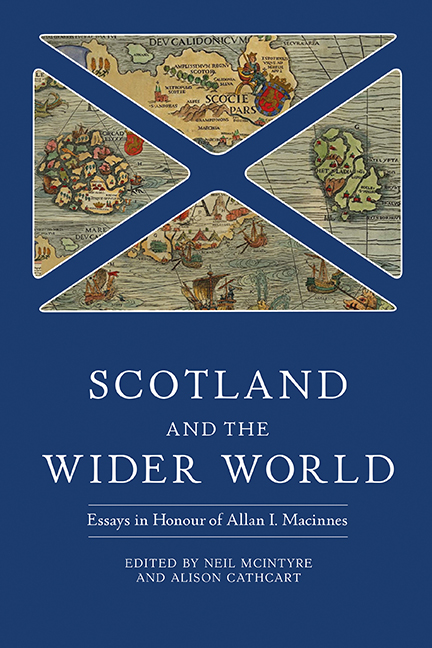Book contents
- Frontmatter
- Contents
- List of Contributors
- Preface
- List of Abbreviations
- 1 Covenants, Clans and Unions in Context: Celebrating the Scholarship of Allan I. Macinnes
- Part I Peoples and Cultures in Britain and Ireland
- Part II War, Religion and the House of Stuart
- Part III Union, Empire and Enlightenment
- List of Publications
- Index
- Tabula Gratulatoria
- Studies in Early Modern Cultural, Political and Social History
9 - From Didactic to Pragmatic: What Scottish Enlightenment?
Published online by Cambridge University Press: 26 May 2022
- Frontmatter
- Contents
- List of Contributors
- Preface
- List of Abbreviations
- 1 Covenants, Clans and Unions in Context: Celebrating the Scholarship of Allan I. Macinnes
- Part I Peoples and Cultures in Britain and Ireland
- Part II War, Religion and the House of Stuart
- Part III Union, Empire and Enlightenment
- List of Publications
- Index
- Tabula Gratulatoria
- Studies in Early Modern Cultural, Political and Social History
Summary
In his long and fruitful career as a historian of Scotland, Allan Macinnes had but a few occasions to directly tackle that monument of national and international historiography that is the Scottish Enlightenment. However, through such works as Union and Empire (2007), Jacobitism, Enlightenment and Empire (2014), his noted contribution to The Enlightenment in Scotland, National and International Perspectives (2015) or his recent History of Scotland (2019), one can sketch some striking features out of his insights on the Scottish eighteenth century and its multifarious dimensions. As a historian devoted to the political and social history of Scotland, Macinnes has thus broadened the chronological scope of his research to deploy a vision of the Scottish Enlightenment as ‘pragmatic’ as opposed to ‘didactic’. This essay aims to present that definition in a broader historiographical context, then to compare it to a particular case study, i.e. the Playfair family of Angus and its various particular and collective courses in and out of Scotland during the second half of the eighteenth century.
The interpretation of the Scottish Enlightenment as ‘applied’ can indeed boast a long historiographical tradition. However fuzzy in its practical definition, the notion has been primarily ascribed to politics and economy as the application of philosophical liberalism to society. Among the many illustrations of the contention one can quote such varied works as those of Dennis C. Rasmussen or Joel Mokyr. Since its questioning by historians of science and technics, the notion now seems to be focusing more on the social dimension of technics, the application of science and technology to society, economy and/or ‘statecraft’, and the history of environment. In the process, several of these developments have taken a somehow ‘practical turn’, with a particular interest in the study of actions and process that one might dub pragmatic Enlightenment. With others, Allan Macinnes has given ground to the establishment of a clear distinction between didactic and applied Enlightenment, i.e. between theoretical and programmatic visions on the one hand and pragmatic actions and applications to society on the other.
- Type
- Chapter
- Information
- Scotland and the Wider WorldEssays in Honour of Allan I. Macinnes, pp. 135 - 149Publisher: Boydell & BrewerPrint publication year: 2022

